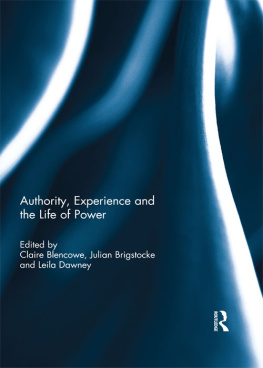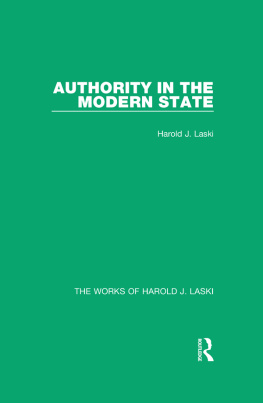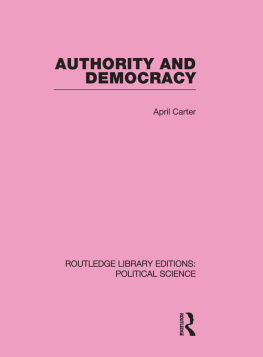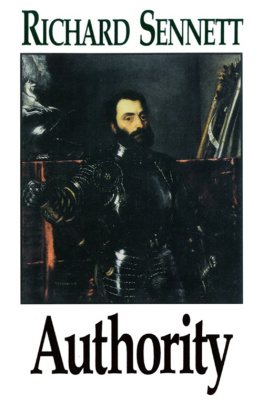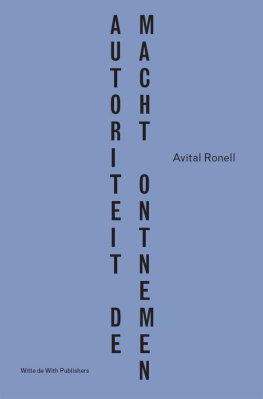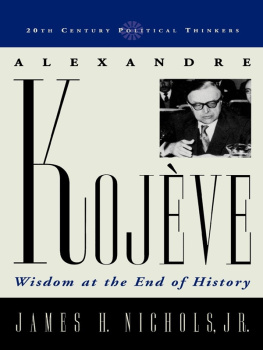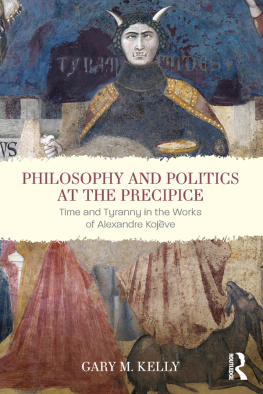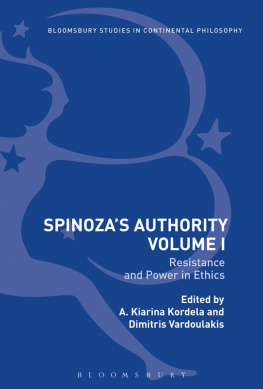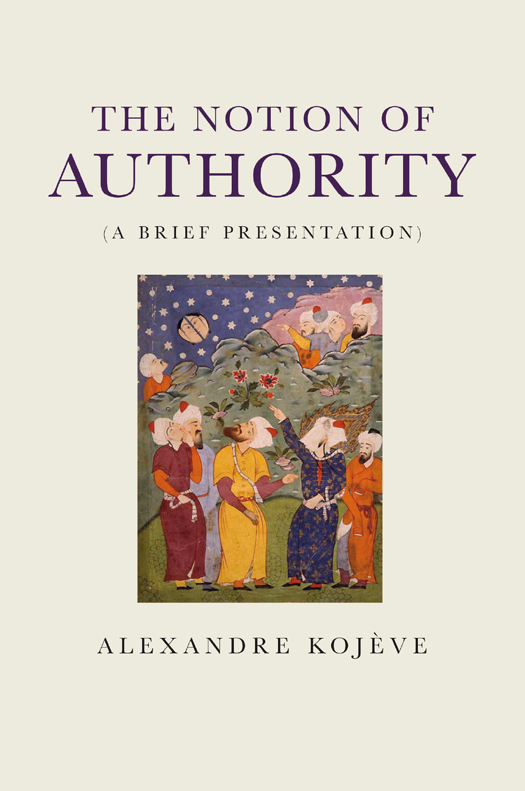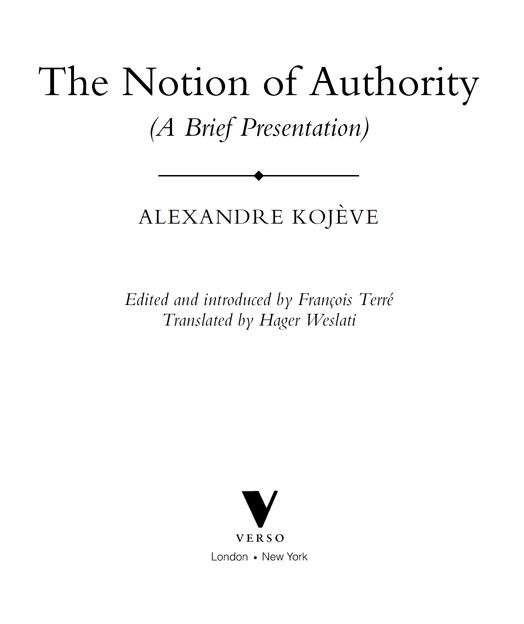This English-language edition first published by Verso 2014
Translation Hager Weslati 2014
First published as La notion de lautorit
ditions Gallimard 2004
All rights reserved
The moral rights of the author have been asserted
Verso
UK: 6 Meard Street, London W1F 0EG
US: 20 Jay Street, Suite 1010, Brooklyn, NY 11201
www.versobooks.com
Verso is the imprint of New Left Books
ISBN-13: 978-1-78168-095-7 (HBK)
eISBN-13: 978-1-78168-630-0 (US)
eISBN-13: 978-1-78168-631-7 (UK)
British Library Cataloguing in Publication Data
Kojve, Alexandre, 1902-1968.
[Notion de lautorit. English]
The notion of authority : (a brief presentation) / Alexandre Kojve; edited and introduced by Franois Terr; translated by Hager Weslati.
pages cm
ISBN 978-1-78168-095-7 (alk. paper)
1. Authority. 2. LawPhilosophy. I. Title.
BD209.K6513 2014
303.36--dc23
2013047896
Library of Congress Cataloging-in-Publication Data
A catalog record for this book is available from the Library of Congress.
v3.1
Translators Note
The French edition of The Notion of Authority, a work that was never made public in the authors lifetime, reproduces a note from the manuscript written at the bottom of the table of contents, omitted here in the English translation. The note reads, N.B. Key issues are discussed in A, I and A, II. See also B, I. Strange as it sounds, this line of advice opens a window onto the authors intentions. Firstly, The Notion of Authority was not intended for public consumption. It reads like a memorandum to an addressee involved in the practical running of government. The Notion can, therefore, be read as a policy paper. Since the man of action (a tyrant) is always in a hurry, it is important that the philosophers counsel to the politician is precise and concise (see Laction politique des philosophes in Critique, n. 41, 1950, pp. 46 and n. 42, pp. 13855). In Kojves lifetime, it is very likely that the manuscript of The Notion was shared with his acquaintances in the French government or read by some of his intellectual interlocutors. A letter dated 9 July 1942 from Henri Moysset (senior minister in the Vichy government but also close friends of Eric Weils family) acknowledges receipt of The Notion. It is also known for instance that Kojve dispatched a voluminous Russian manuscript to Stalin and the Russian people in 1941 via the Soviet embassy in Paris, and that in 1945 he prepared a memorandum to Jean Filippi on French foreign policy, a version of which is best known as The Latin Empire.
Secondly, the note alerting the reader to what is interesting in the book may also be interpreted from a philosophical angle. Since The Notion focuses on the phenomenological analysis of authority, it is nothing other than a fragment from a bigger project. Kojves philosophical system consists of three planes: phenomenology, energology, and ontology. He is alerting readers that his study is not conclusive, because it does not cover all three planes of his system.
Kojves stylistic idiosyncrasies, namely his use of capitals and italics, have been kept as found in the original French manuscript. All previous editors of Kojves published work, Raymond Queneau or Raymond Aron for Gallimard, Georges Bataille or ric Weil in Critique, as well as his North American translators; they all have respected Kojves stylistic oddities. We saw no reason to deviate from that established tradition in the present translation. It is very likely that the use of capitals, in particular, has something to do with Kojves philosophical education in German universities in the mid-1920s. It is, however, quite clear that capitalized words such as Authority or State refer to concepts rather than to abstract words or floating signifiers with changing meanings and usage. Words like Leader, Father, Judge or Master, do not refer to actual persons in the flesh, but to phenomenological, ontological and metaphysical notions, whose meaning can only be deduced from Kojves philosophical system (Systme du savoir).
More generally, I have supplied editorial notes throughout both the introduction and main text. These notes are enclosed in square brackets to indicate their provenance.
Introduction to the French Edition
Franois Terr
Alexandre Kojve exerted a major influence on philosophical thought, and his is a fascinating career. Originally from Russia, born in 1902, he left the land of the Soviets in 1919 or 1920 for the Berlin of Brecht and expressionism. In 1926, as things started taking a turn for the worse in the Weimar Republic, he settled in the Paris of the roaring twenties. The 1929 economic crisis, coming on top of previous bad investments, left him bankrupt. He decided to take up philosophy for a living. In the meantime, he had studied the ultimate ends of the ethics of Christianity and Buddhism and published in 1931 an essay on atheism. The lure of oriental philosophies led him to learn Sanskrit, Chinese, and Tibetan. He defended his dissertation on Vladimir Soloviev (18531900) at Heidelberg in 1926.
Strains on his financial means, and a good word from his friend Alexandre Koyr, whom he later succeeded in his teaching post, led to Kojve finding himself running a seminar at the cole Pratique des Hautes tudes in Paris. Last but not least of the many
Kojves thought was a decisive stage in the return to Hegel which, since 1945, marked most of the protagonists of the three-H generation named after Hegel, Husserl, and Heidegger. This was paralleled, in the same vein of the humanisation of nothingness, by a revolt against neo-Kantianism and the eclipse of Bergsonism.witnessed the ebb and flow of this line of thought. This sequence still shows the extent to which Hegels thought remained an obligatory route even for those who sought to shield themselves from it. In this respect, whether faithful to Hegel or not but what does such faithfulness mean? Kojves influence was capital in terms of the expansion of the realm of reason. This is excellently formulated by Vincent Descombes in the following terms:
any thinking which aspires to be dialectical must, by definition, induce in reason a movement towards what is entirely foreign to it, towards the other. The whole issue now rests upon whether the other has been returned to the same in the course of this movement, or whether (so as to embrace rational and irrational, the same and the other at once) reason will have to transform itself, losing its initial identity, ceasing to be the same and becoming other with the other.
Hence reasons obligatory passage via excess or aberration on its path towards wisdom; and via cynicism, violence or terror where, according to Kojve, both the philosopher and the tyrant act similarly, or at times even together. From Hegel, Kojve borrows an immanent teleology that guides the dialectical movement of negativity, the very force of ideologies of progress; but its essential contribution rests on the idea that there comes a moment, with the contradictions of history ultimately resolved, when this teleology itself comes to an end. The end-of-history thesis is added to the famous Hegelian masterslave dialectic; the one and the other are knit together.



